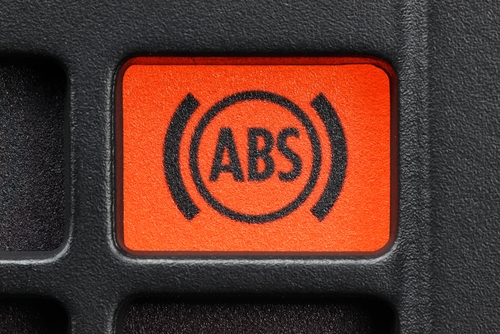Automatic Emergency Brake Systems Becoming a Standard Feature in Near Future
The National Highway Traffic Safety Administration (NHTSA) recently announced that 20 of the largest auto manufacturers operating in the US, representing 99% of the American car market, have committed to making Automatic Emergency Braking (AEB) systems a standard feature on all new cars by September of 2022. The commitment has been credited as a major advance in driver and passenger safety.
AEB systems are an automation feature that allows the car to intervene when a collision appears imminent. The systems use cameras, radar, and lasers in the front end of the car to scan for objects in the roadway ahead, and warn the driver when it appears that the driver will collide with one of those objects should it continue along the same course. Depending on the design of the individual system, the car’s computer will either increase the amount of braking power being applied by the driver, or will apply the brakes entirely when the driver does not. AEB systems were introduced in cars in the US in 2000, with Mercedes Benz having the first model to enter the market. Such systems were at first largely only available in luxury vehicles, but have become an increasingly common upgrade option in mid-level vehicles in recent years. Similar to AEB systems are Front-Crash Warning (FCW) systems, which use the same technologies to scan the roadway ahead and warn of any upcoming collision hazards, but have no ability to stop the car if the driver fails to take evasive measures.
The Insurance Institute for Highway Safety (IIHS) has conducted several studies of AEB and FCW systems to determine what effect these systems have on accident prevention, and found the effect to be substantial. In one study, the institute compared the rate of involvement in police-reported crashes between cars with no crash-prediction systems, only an FCW system, or an AEB system. The research showed that cars with FCW systems were 23% less likely to be involved in a police-reported crash, and that cars with an AEB system were 39% less likely to be involved in such a crash. Cars with AEB systems were also 43% less likely to be in an injury crash.
While both the AEB and FCW systems are indeed a massive improvement in roadway safety, neither is infallible. Experts warn drivers of cars equipped with these systems to remain attentive to the road ahead, and not to rely on automation alone to avoid hazards on the road. While it isn’t common, these systems can fail or become vulnerable to technical glitches, and if a driver is not giving their full attention to the road when a crash is imminent, the driver, rather than the AEB system, will be liable for any injuries caused in an accident.
If you or someone you love have been injured in a Florida or Alabama car accident and need experienced legal assistance to ensure that you’re fully compensated for your injuries, contact the seasoned and trial-ready personal injury attorneys at Whibbs Stone Barnett Turner, PA for assistance with your claims, at 1-888-219-4561, with offices conveniently located in Mobile, Ft. Walton, and Pensacola.



